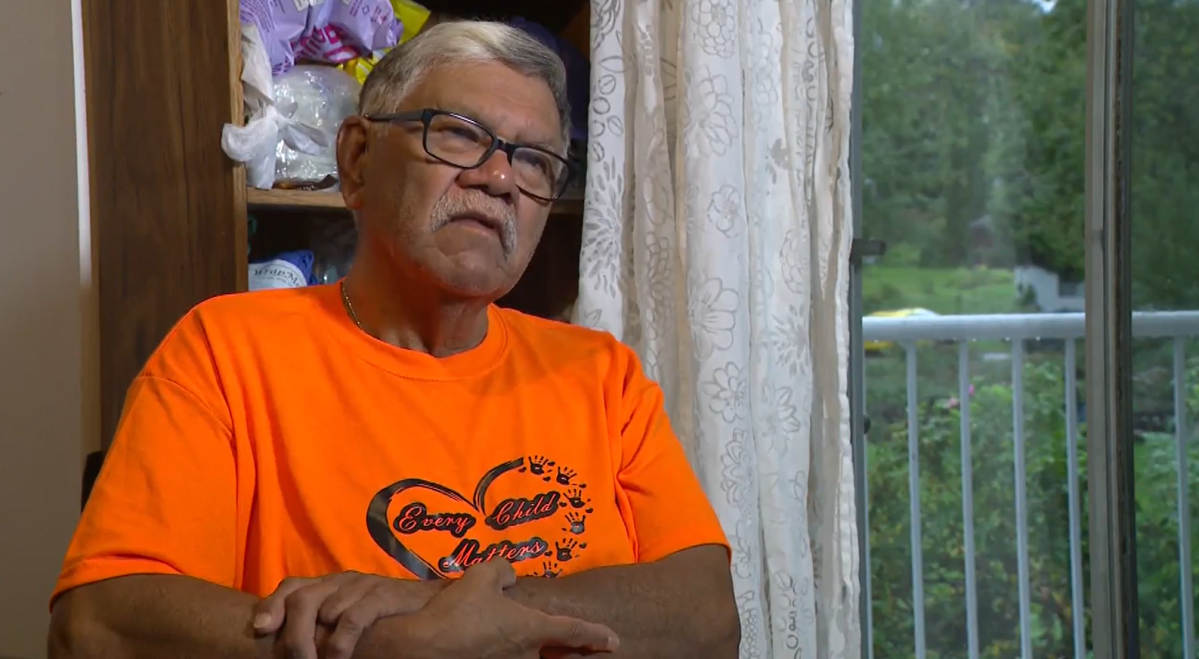Warning: This story deals with disturbing subject matter that may upset and trigger some readers. Discretion is advised.

Members of the Tsleil-Waututh Nation, its friends and allies marked Canada’s first official National Day for Truth and Reconciliation with a special pilgrimage.
Clad in orange, together they marched nearly nine kilometres from the reserve in North Vancouver to the site of the former St. Paul’s Indian Residential School.
“This is our own way of taking some of that power back — retracing the steps to go to school,” said Gabriel George, whose father attended the school when he was just six years old.
“There was a lot of hurt that was done to our people … We are one heart and one mind today, we are all one family today.”
Earlier this year, the Musqueam, Squamish and Tsleil-Waututh Nations, along with the Catholic Archdiocese, launched an investigation into St. Paul’s, which operated from 1889 to 1959 as the only residential school in Metro Vancouver.
According to Tsleil-Waututh, more than 2,000 children were institutionalized there, many of whom were later relocated to the Kamloops Indian Residential School.
Stories told by survivors of St. Paul’s include children disappearing, although public records say only 12 unidentified students died there between 1904 and 1913.

Tseil-Waututh Elder Stanley Thomas, affectionally known as ‘Spin’ in his community, attended the school with his two brothers starting in 1952. He doesn’t recall how long he was there exactly, but estimates it was between six and seven years, before attending a day school.
“More than not being able to come home after school … You got out of line, you were punished for it,” he told Global News on Thursday.

Get daily National news
He recalls being forced to kneel in the school’s hallway after he was caught chatting with a friend after bedtime, and the nun forgot them there.
“We both ended up sleeping on our knees, leaning up against the lockers,” he said.
Prior to the unearthing of mass unmarked burial sites in Tk’emlúps te Secwépemc this year, Thomas said he didn’t often reflect on his time at residential school.
Now, when he thinks about it, he realizes he knew more Latin than his own language, because he was forced to attend church three times a week.

He said the National Day for Truth and Reconciliation means his grandchildren and their grandchildren will never forget his story, and the lasting impacts of the residential school system.
He, too, took part in the pilgrimage to St. Paul’s Indian Residential School. Marching alongside friends, with sidewalks lined with supporters and allies, he said it “felt good.”
The Indian Residential Schools Crisis Line (1-866-925-4419) is available 24 hours a day for anyone experiencing pain or distress as a result of their residential school experience.








Comments